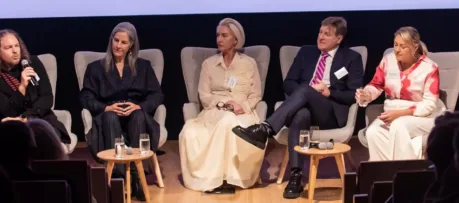We are frequently asked by our clients whether recording conversations as evidence on their mobile phones to use in their court case is legal. It is alarmingly regular how often clients report that the other parent is routinely recording their conversations without their consent following separation or during family law proceedings. This behaviour is often perceived by the non-consenting party as intimidating and threatening and may be reported to the Police.
In New South Wales, the Surveillance Devices Act 2007 prohibits the recording of audio conversations without the consent of all parties unless it is reasonably necessary for the purpose of protecting the lawful interests of the party who records the conversation.
Recording Someone Without Their Consent Is an Offence
In New South Wales, it is an offence to knowingly install, use or cause or to maintain a listening device to overhear, record, monitor or listen to a private conversation to which the person is not a party or to record a private conversation to which the person is a party. There are penalties for this offence including fines and up to 5 years imprisonment.
Therefore a person who is a party to a private conversation may make a record of that conversation only if:
- all of the principal parties to the conversation consent, expressly or impliedly, to the listening device being so used; or
- a principal party to the conversation consents to the listening device being so used and the recording of the conversation is either:
- (i) reasonably necessary for the protection of the lawful interests of that principal party; or
- (ii) not made for the purpose of communicating or publishing the conversation, or a report of the conversation, to persons who are not parties to the conversation.
Recording a Conversation as Evidence Without Committing an Offence
If a person intends to record a conversation, in order to do so without committing an offence they must obtain the express or implied consent of all principal parties; or believe that it is reasonably necessary for the protection of their own lawful interests to make the recording without the consent of the other party.
Were the Recordings Legally Obtained?
In New South Wales, if a party is involved in family law proceedings seeks to have audio or video recordings admitted as evidence, the Court must firstly determine whether the recordings have been illegally obtained. In order to do this, the Court will need to consider whether the person who made the recording without the consent of the other party did so to protect their lawful interests and will also need to consider whether it was reasonably necessary for the recording to be made without consent.
If the Court decided that the exception applies and the recording is then admitted into evidence, the Court will then decide what to weight to put on the evidence.
Reasons why Courts have found that the exception applied and the recording was reasonably necessary to protect the lawful interests of the person making the recording include:
- that the Mother had the right to protect her interest not to be intimidated or harassed, and not to be forced to respond to the Father’s demands for sexual activity.
- to obtain evidence of family violence which takes place behind closed doors without any witnesses being present other than the alleged perpetrator and victim.
The Court may also be asked to exclude such evidence if its probative value is substantially outweighed by the danger of the evidence being unfairly prejudicial to a party.
Check the Legislation in Your Own State
Other States and Territories in Australia have their own legislation in relation to surveillance. In Queensland, Victoria and the Northern Territory, it is not a criminal offence for a party to a private conversation to record that conversation without the consent of the other participants, but it is an offence in those jurisdictions to publish that recording unless permitted in limited circumstances including in legal proceedings.
With constant technological advancements in our day-to-day lives, we need to ensure we stay up to date with the law around what we can and can’t do online. Here is a post about why you should be wary what you post on Facebook when going through a family separation law case.
Should you have any questions regarding your own case, please get in touch with us to work with one of our skilled lawyers.





